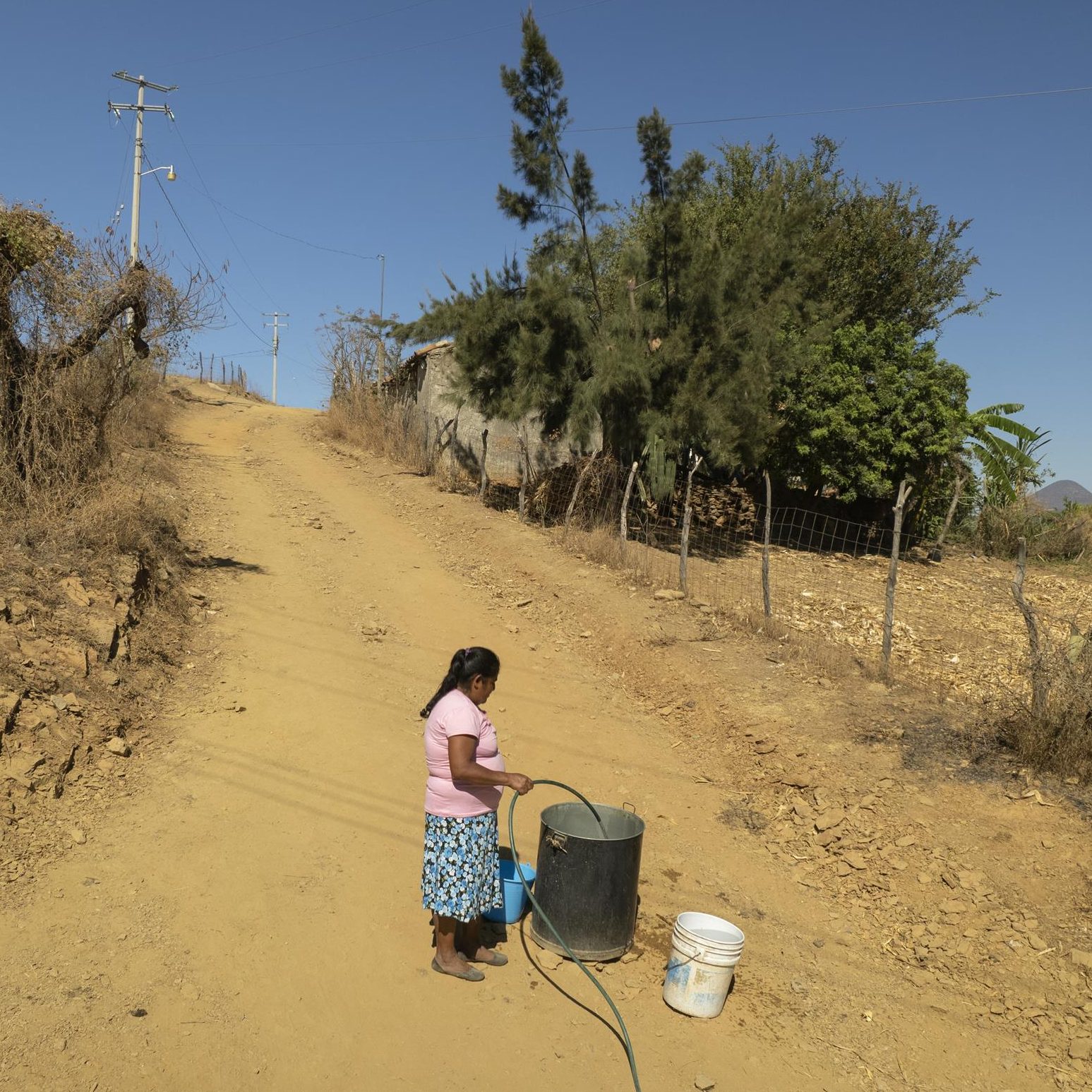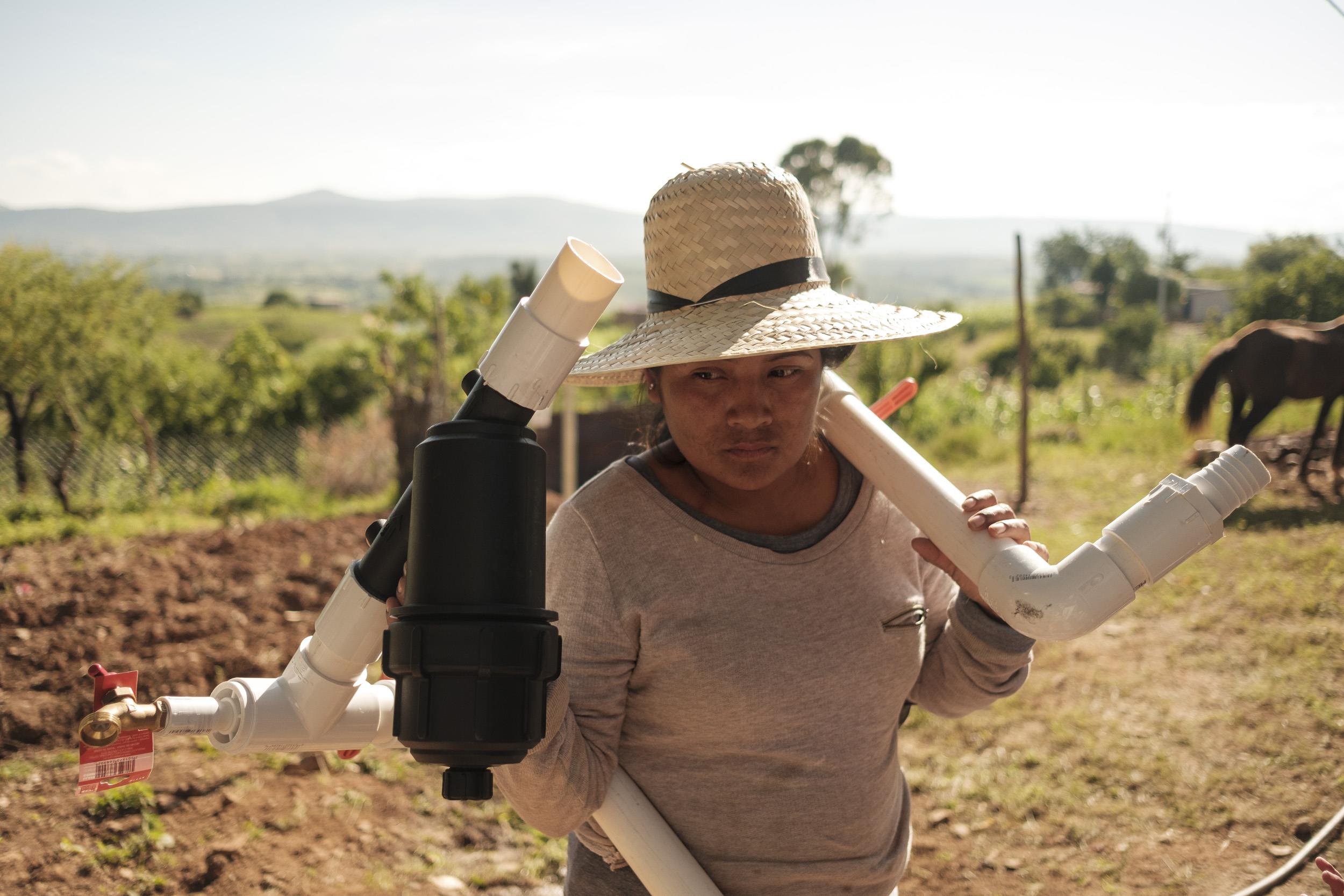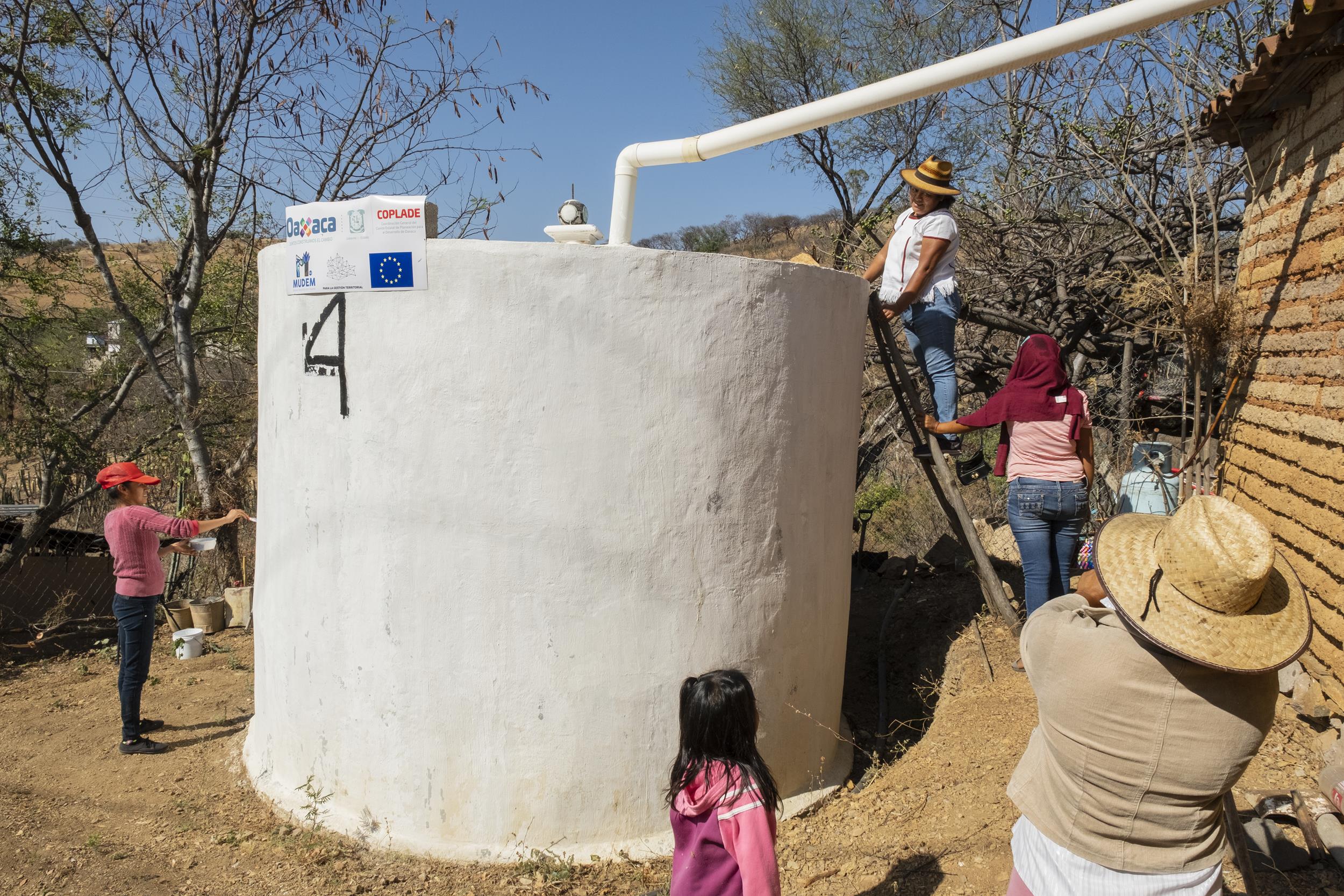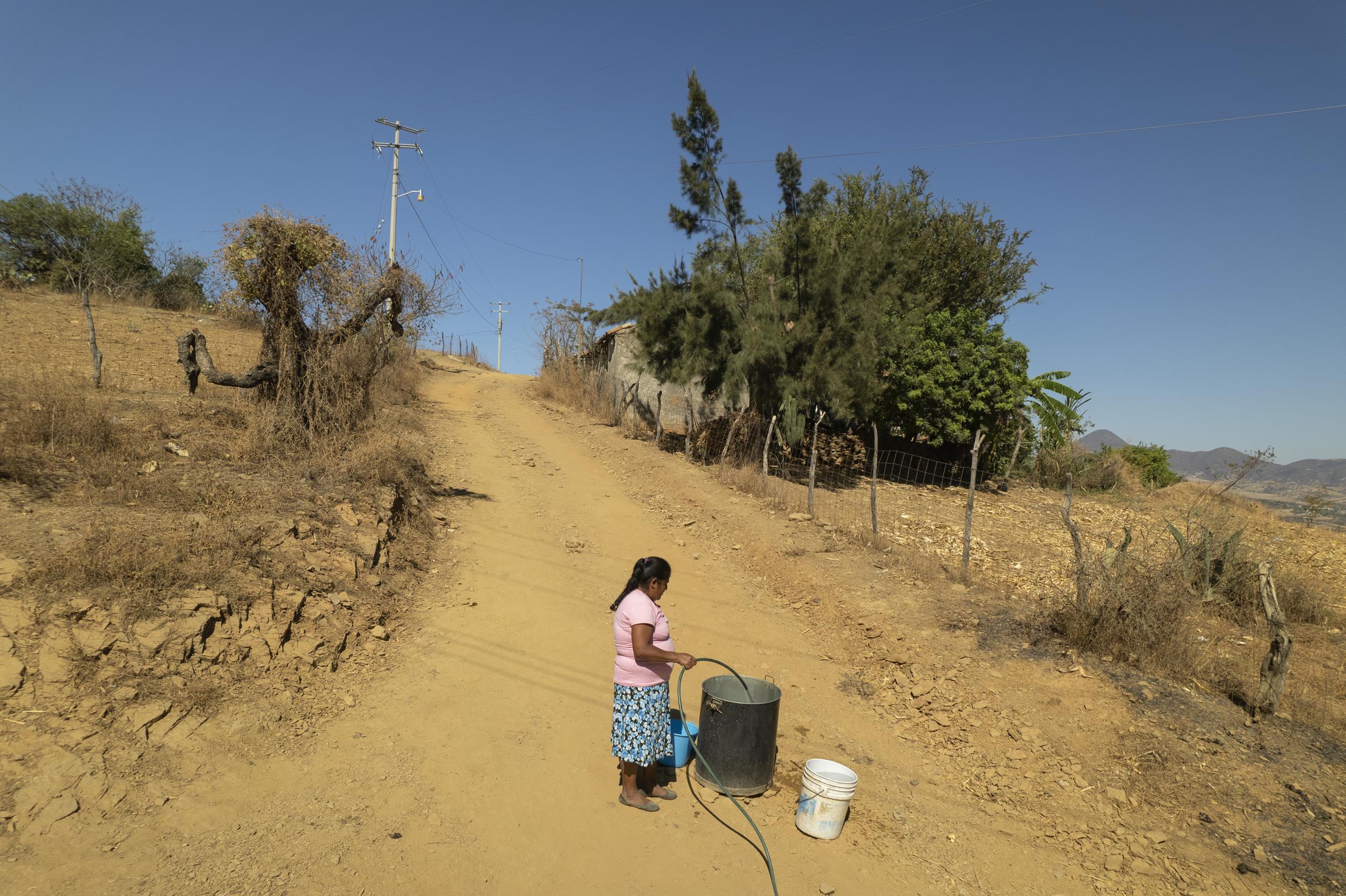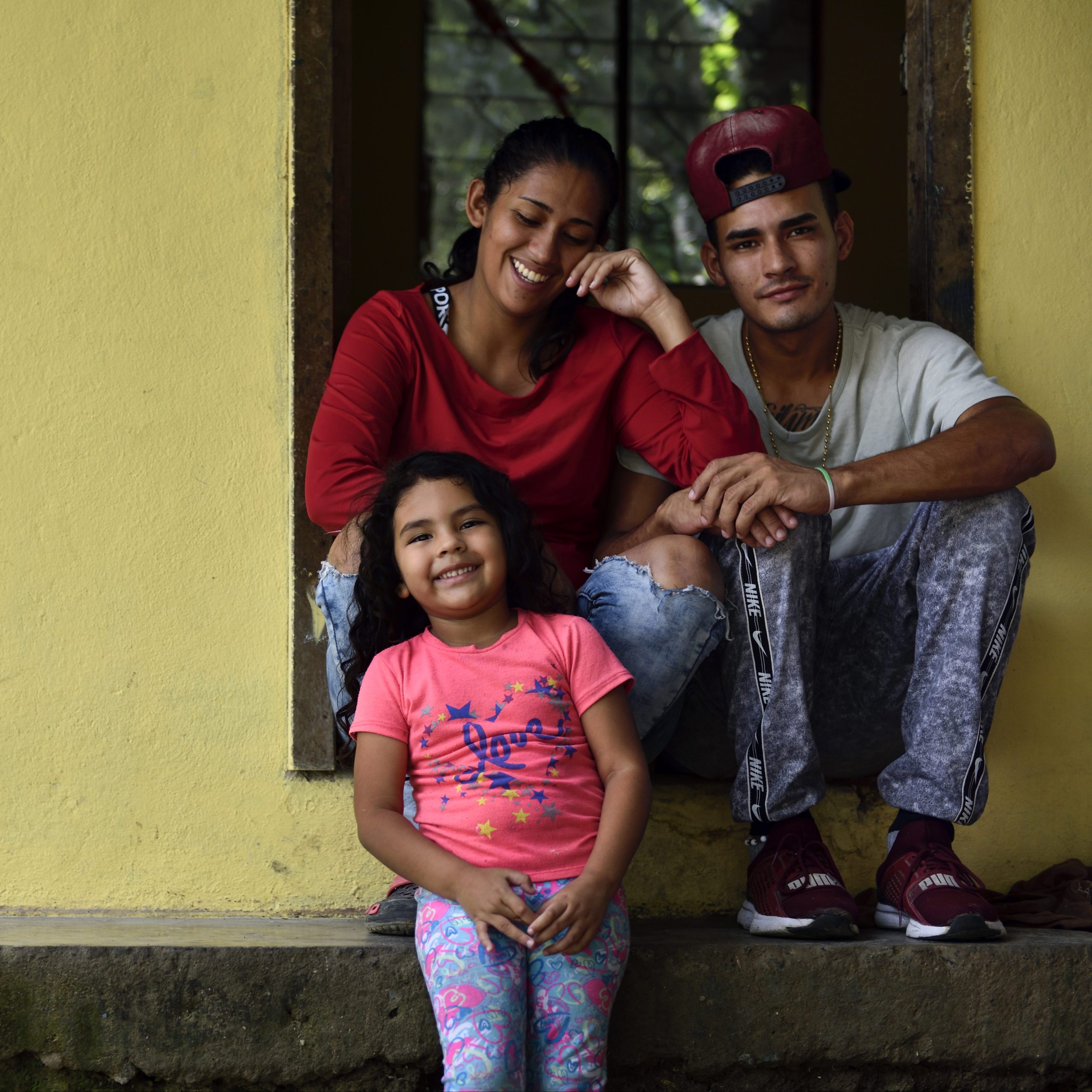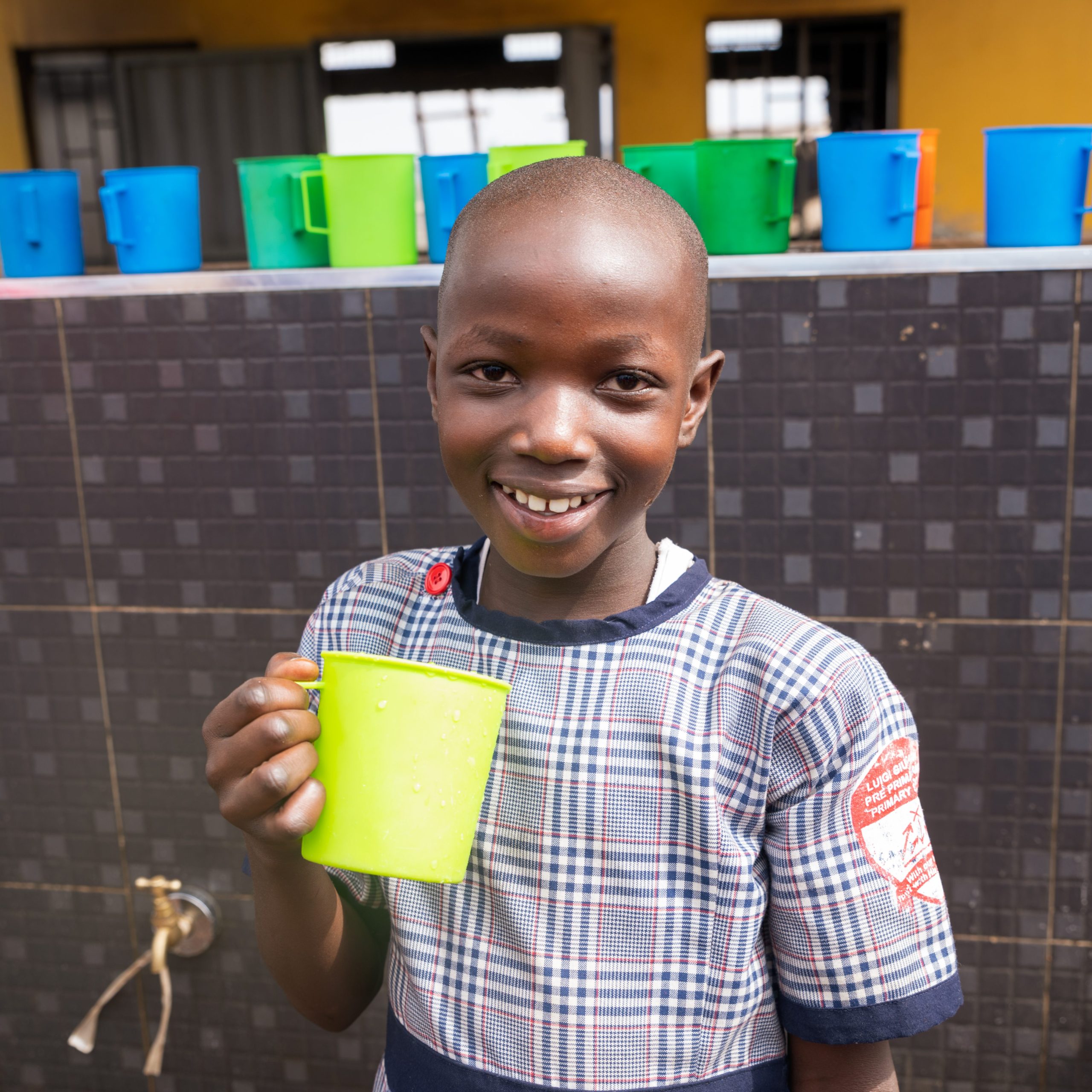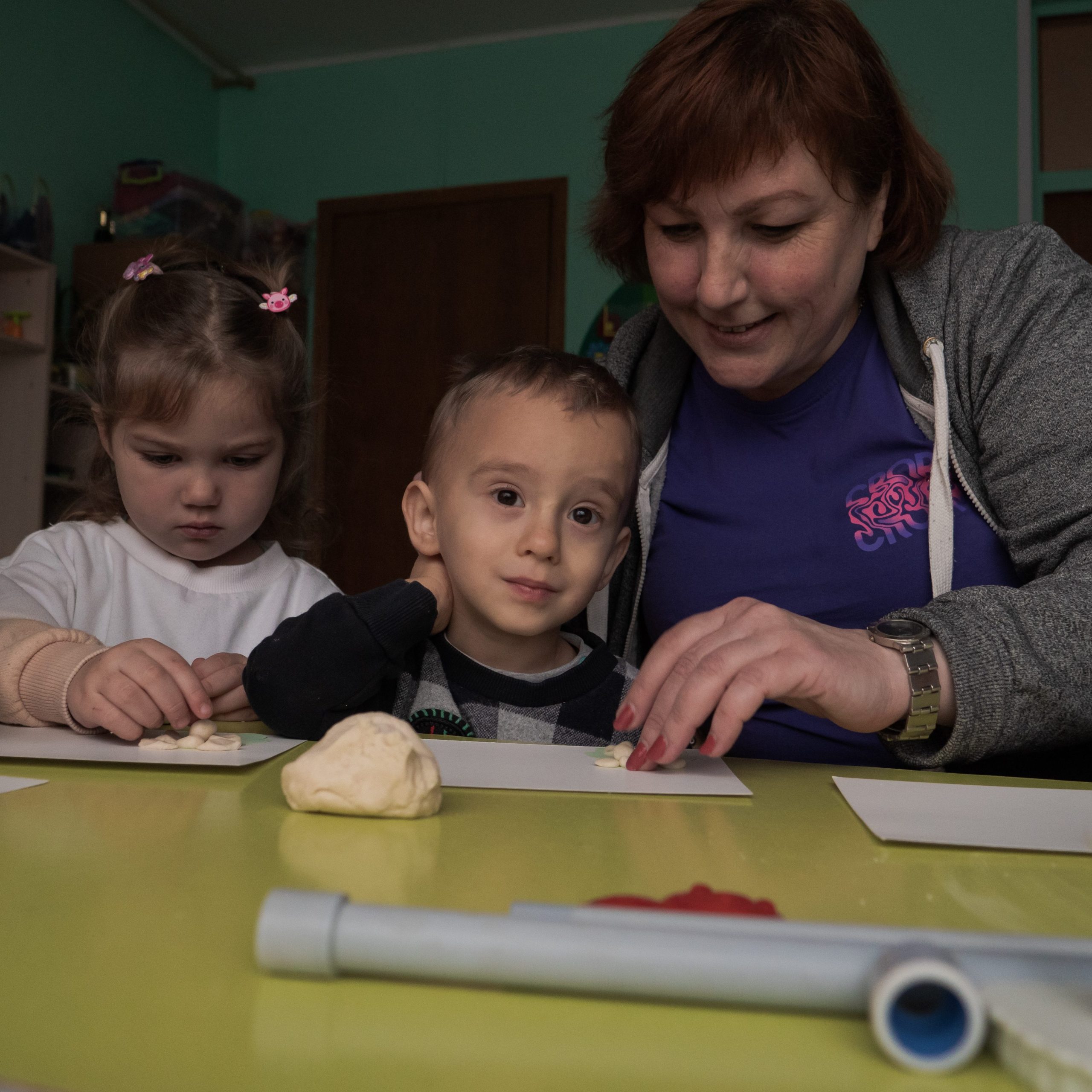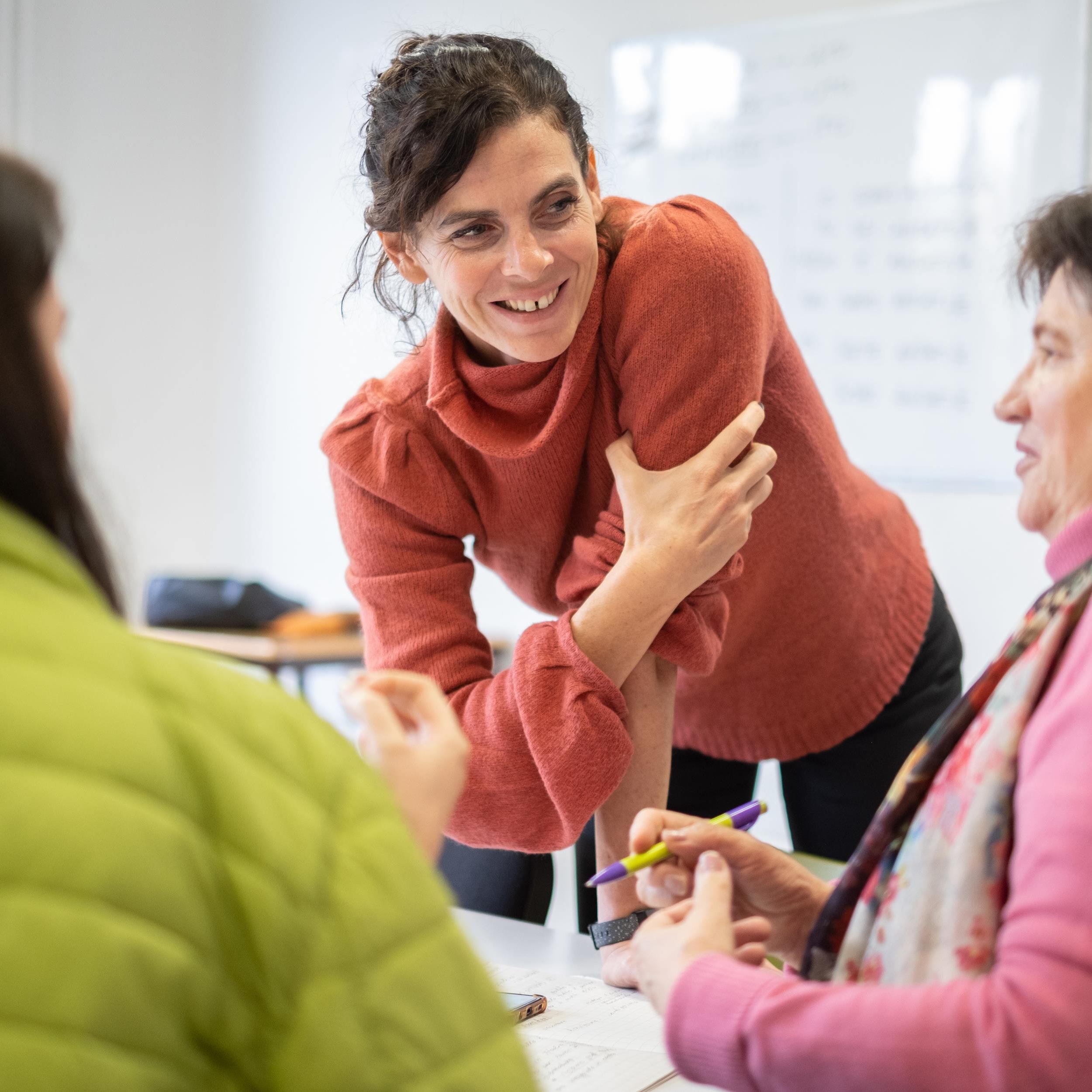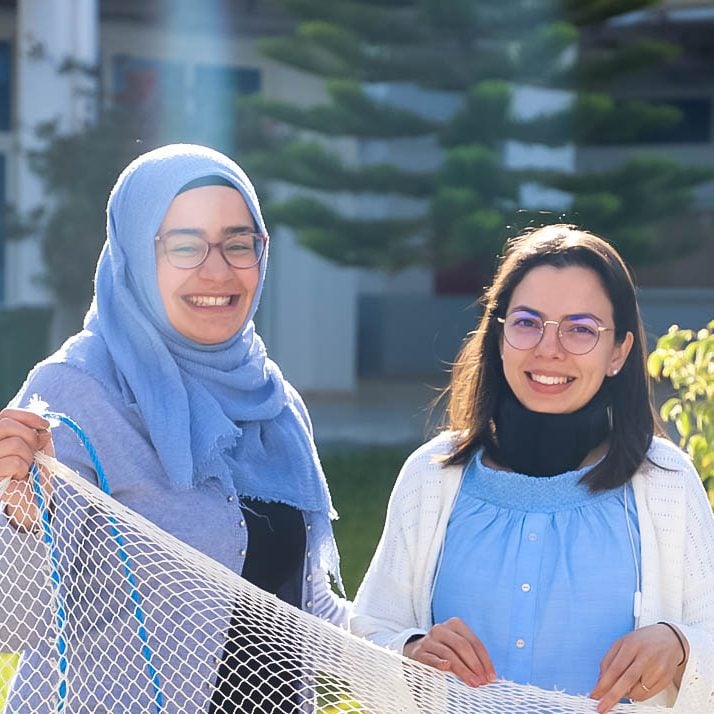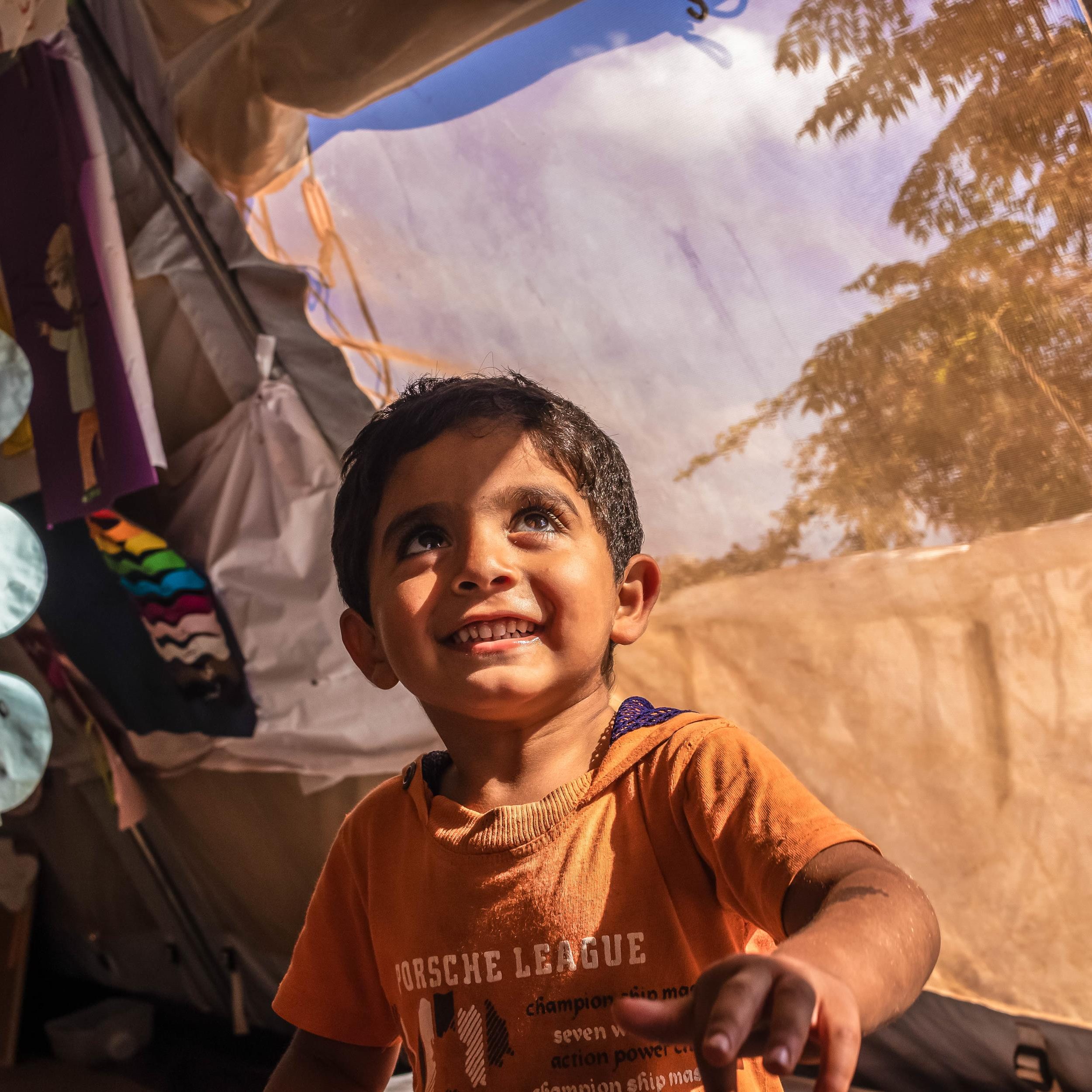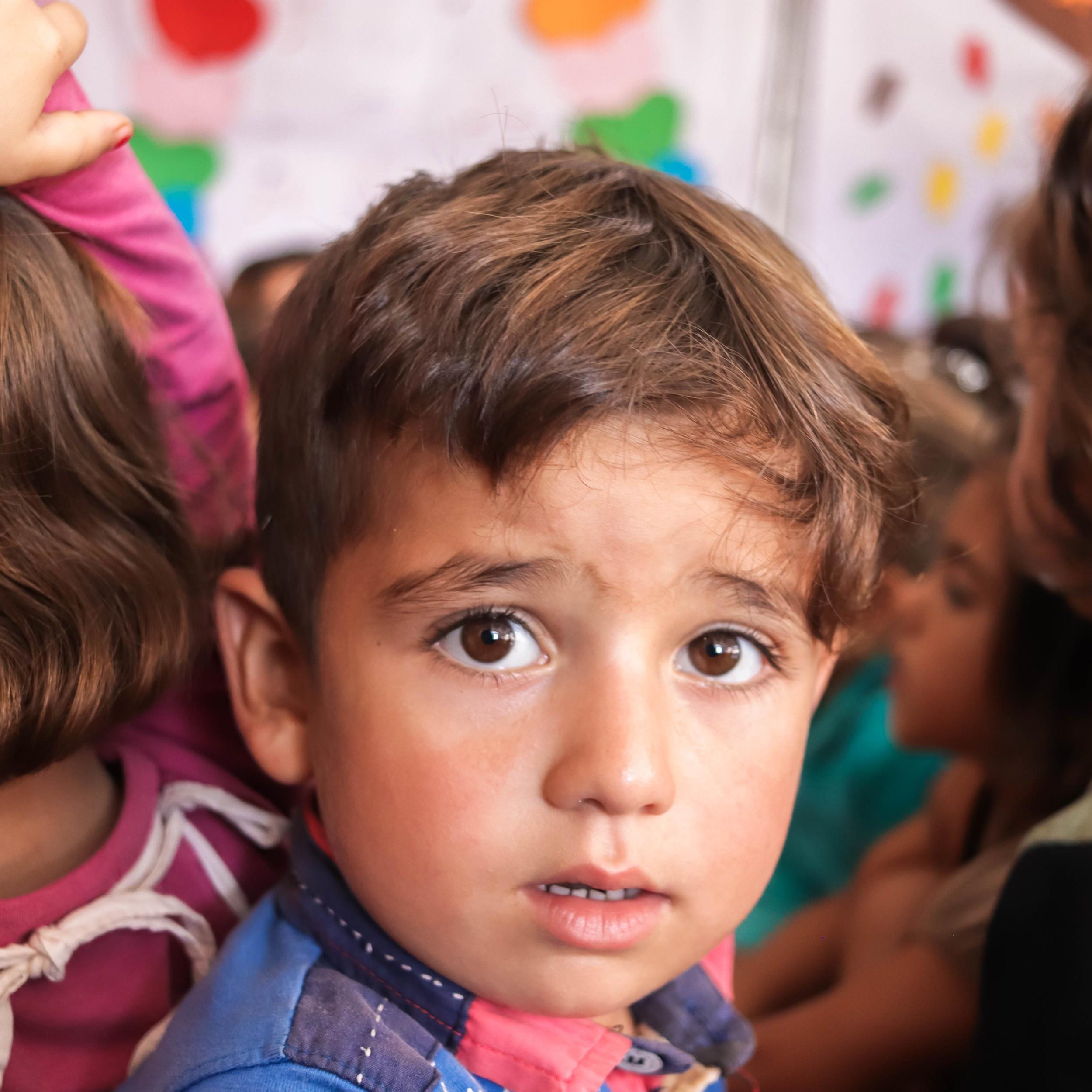To show what AVSI means by "promise of sustainability" I was asked to document how female-led projects to build collection and filtration tanks in Mexico are helping communities save rainwater and make it safe to drink.
I met Patricia Silva Lopez, the founder of a women association that has been working for years to promote the emancipation of women in Mexico. AVSI is collaborating with them to improve the future of local communities, with a sustainable approach.
The climate crisis has exacerbated drought across Mexico
Heavily hit by the pandemic and facing severe economic and social crisis, Mexico has to deal also with drought, that - according to the National Water Commission (CONAGUA) - affects 84% of the national territory and 1,295 municipalities. A long-standing problem, exacerbated by climate change, global warming and poor water management.
The MUDEM organization (Mujeres en Desarrollo para el Progreso de San Luis Morelia) is run by indigenous women and it is seeking to put an end to the situation by giving access to clean water to their community. Having a water supply has made it easier for people to grow fruit and vegetables and sell them, as well as to care for their animals.
Access to water for indigenous communities in the state of Oaxaca, Mexico
Previously, women in these communities had to walk 5 kilometers to get two buckets of water. Now, they just have to open the tap of the tank to get get clean water in their homes. They save time and effort, while their right to water is being met, as it should be.
Patricia Eduviges Silva López, leader of the local NGO “MUDEM”

Patricia had an idea she could put into practice thanks to the support provided by AVSI through an international project funded by the European Union and by the government of Oaxaca: she thought of building collection tanks in ferro-cement. Rainwater could therefore be collected into them thanks to a system of channels installed on the roofs of the houses.
Since quite some time, AVSI has been working to strengthen the capacities of hundreds of Collectives and Civil Society Organizations like MUDEM. Through its projects, AVSI helped them improve their organizational planning and management process, enhance monitoring and evaluation procedures, increase resource mobilization and participation in public policies.
In addition to strengthening CSOs in Mexico, AVSI has also created opportunities for continuing dialogue among the organizations, local authorities and private actors. This way, it has been possible to design, implement and monitor public policies aimed at improving territorial development, with an emphasis on education, access to water, peace building and sustainable development.
According to the United Nations Convention to Combat Desertification (UNCCD), “turning degraded land into healthy land brings economic resilience, creates jobs, raises incomes and increases food security. It also helps biodiversity to recover. It locks away the atmospheric carbon warming the Earth, slowing climate change”.
That’s why I think we shouldn't just document the negative impact of drought and climate change, but also the solutions implemented by local actors and indigenous communities, which can be described as a real parteaguas: watershed in Spanish, a turning point to protect and preserve our planet for future generations.
More about the project
Every drop is precious: Mexican women saving water for their villages.
The photo reportage published on The Guardian >

